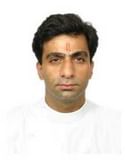Ovarian Cysts in Women
Good evening, I am Dr Rahul Manchanda, and I’m consultant gynaecological endoscopic surgeon. I have spoken to you on this platform before, and I’m based at A 32, New Friends Colony, which is my OPT, Manchanda Endoscopic Center, and I perform all surgeries at Pushpawati Singhania Research Institute Hospital.
Now let us discuss on ovarian cysts in women. Ovarian cysts are important because these are a collection of fluid in the ovary, or they can be tumours in the ovary, but not to worry about this issue. The situation can become worst in case of ovarian cancer. And unfortunately, the ovary is notorious for having cancer which is detected very late, because they increase at such a huge pace that by the time the symptoms appear, it’s very late. And these are normally detected in the last stages where nothing very much can be done. So it’s important not to take it lightly. At every stage of a woman’s life, whether it is in before she gets her menses, or when she’s menstruating, or after the menses finish, there is various range of awareness that can occur. One should go for a regular gyno checkup, or go for a regular medical check-up and get an ultrasound in various stages, and see if everything is alright. If there is a cyst, it would catch, and that needs to be investigated, and you need to see your gynaecologist. The cysts can be normal and can be physiological, but they need to be investigated.
Nowadays of course we have minimal invasive surgery, so they can be tackled very easily. We can make a diagnosis and there is no requirement of making the large cut but the cyst can be removed through small holes. And we advice the patient to go home the next day. With the diagnosis, and of course, with satisfaction that it is nothing sinister.
So please look after yourselves. Go to a gynaecologist, go to a doctor.
If you need to consult us you can get us through Lybrate platform, or of course the OPT either at Pushpawati Singhania Research Institute in the mornings or in the evenings at New Friends Colony.
This is Dr Rahul Manchanda. Thank you very much.


+1.svg)
